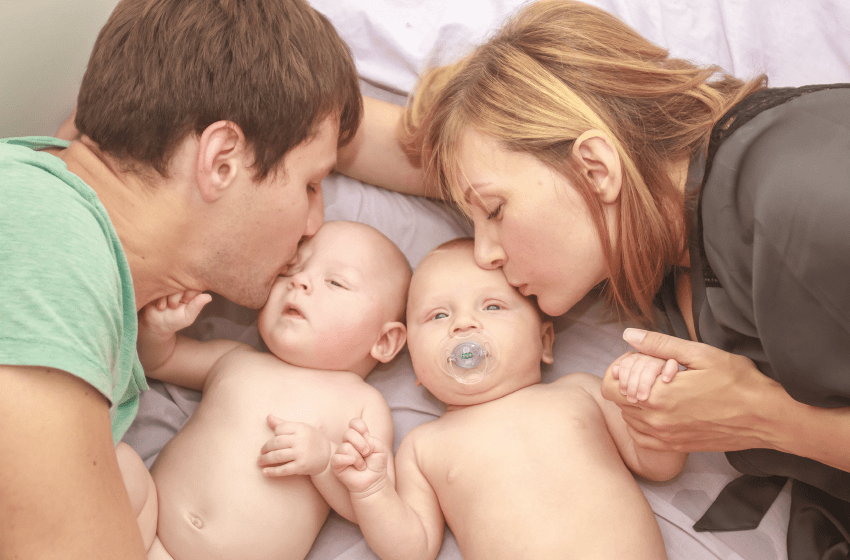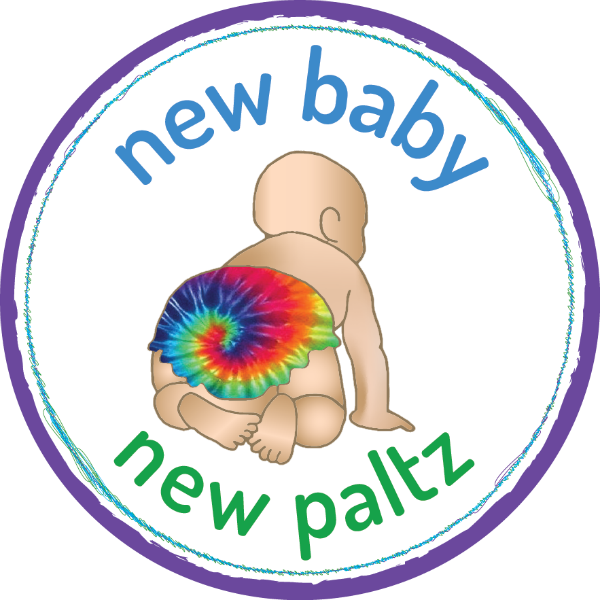
You're OK - Be a Better Mom Without Doing Anything!
One year old Maya was taking her first steps when she abruptly face-planted, startling herself and bumping her head. Her daddy scooped her up and snuggled her in.
"You're OK! You're OK. You didn't hurt yourself. You are fine. You did it! You walked!"
To his surprise, she just cried harder.
He started to bounce her and chant, "What's wrong? You aren't hurt. It's just a little bump. You are OK. All Better! See? Just a little bump. Nothing to cry about."
Her response was to scream and thrash her legs wiggling out of his arms.
She slid down his leg onto the floor and continued sobbing. Her daddy stopped. He looked at her. While a goose egg was forming on her forehead, big tears ran down her face. She was sobbing deep sobs and had refused his comfort. It seemed way out of proportion to the fall she had taken.
And it was. The bump hurt, but it was the suddenness of the fall that had frightened her and that hurt more, so she cried in fear.
But what hurt most was her daddy's dismissal of her fright.
In her mind, her protector had failed to protect her and was now dismissing her fears as unimportant. In other words, he was dismissing one of her basic needs.
We can't always protect our baby or child from harm.
Things happen that we have no control over. Toddlers trip and topple over. We have car accidents and children get sick.
On some level your child understands this but still has a basic need for you to protect them from bad things. When that need isn't met, because we can't possibly catch every fall and prevent every bruise, something else has to take it's place.
That something else is empathy and compassion.
Compassion is when you understand that a person has their own reasons for behaving in a curious way. Compassion forgives their inexplicable behavior and lets you be kind to them. We offer reassurance. We have patience with babies and children as we do when someone is handicapped. We don't expect a person with a broken leg to run. We don't expect a baby or toddler to be smiling all the time.
Empathy is relating with someone from their perspective.
We all know or have heard of a baby who was terrified of Santa. We don't understand it from our perspective. Why would any child be scared of Santa Claus? But if we look at it from a toddler's perspective, things look really different.
A toddler might think: "This person is a stranger! I've never seen such a big beard. He acts like he knows me but I don't know him. He's loud and too close. If I could take my time and meet him, I might want to know him more, but I don't know what he'll do to me. Better to be safe and stay with Mama. She will protect me."
When you are empathetic and compassionate, you look and listen to your child and try to figure out what is wrong from their point of view. You listen and make an educated guess based on their age and development. You acknowledge their feelings, instead of shushing them, which helps them calm themselves.
Sometimes there is nothing we can do.
A baby who is colicky and crying causes feelings of helplessness and hopelessness in us and there isn't much you can do. When your baby cries like that, you would do anything to make them stop.
But telling them that they are OK, that there's nothing wrong and telling them that they are fine isn't true. What is true is that you don't know what is wrong and you can't do anything more than hold them until they feel better.
If you have ever been upset, you can understand this.
It's a universal experience to have a family member tell us to be quiet, that there's nothing wrong with us and certainly nothing to be upset about! But inside, we know there is something wrong. Others don't have to fix anything or hurry us through our problem. All they need to do is witness our unhappiness so we don't have to face it alone. When someone takes time to sit with us in our pain, that action, in itself, eases the pain.
Why is this important? We are human beings with emotions.
When we are encouraged to feel all our emotions, and that all of our feelings, good and bad, are OK, we can feel normal! We learn to have a healthy respect for ourselves and our powers of perception. We can trust that if we hurt, there's something wrong and we can ask for help!
If our baby's emotional needs are not allowed to be expressed and develop, they can not be empathetic to others. They may have trouble forming family relationships and friendships that nourish them. When you are empathetic and compassionate to your baby and toddler, you model ideal human behavior that they can use with their siblings and friends.
The all-powerful, all-knowing parent tells a baby this:
“You are crying over nothing.” “You should be ashamed of yourself for not being a big girl.” “Suck it up! Be a man.” “Don't be a cry baby!”
The child mistrusts what they are feeling. They may find themselves in a situation wondering if something bad is really good because they have lost touch with that inner guidance that was in place when they were babies.
Each developmental stage has its own developmental needs which requires parents to respond differently as their baby grows. What never changes is the need for babies and children to be listened to and receive empathy and compassion.
And responding like this often feels like you are doing nothing.
